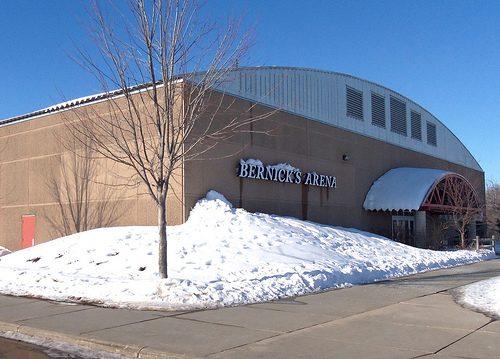by Dennis Dalman
news@thenewsleaders.com
What do St. Joseph residents want as a regional sales-tax project in the greater St. Cloud area? Sprawling theme park? Gigantic athletic multiplex? Riverside arts-and-entertainment plaza? Aquatics center?
At this point, it’s OK to daydream. That is why there will be a brainstorming open house from 3-7 p.m. Wednesday, Jan. 22 at the St. Cloud Public Library. Everyone in the six cities in the greater St. Cloud area is invited to attend to give ideas for regional projects. An aquatics center has been high on the “wish list” for many years.
Residents’ input is important because all six cities are making plans for a half-cent sales-tax referendum. That sales tax was first approved in 2002 by most cities. St. Joseph, however, did not approve the tax until 2005. Voters approved an extension of the tax in 2006. That latest extension is due to expire in 2018 unless voters once again approve it. The Minnesota Legislature has given approval for the six cities to extend the tax if voters so choose. The six cities are St. Joseph, Sartell, Sauk Rapids, Waite Park, St. Augusta and St. Cloud. A sales-tax referendum could occur as early as this November or as late as 2016.
This is how the regional half-cent sales tax works. One or more big regional projects must be built that would benefit all the cities’ residents. The major projects must be approved by the voters. Previously, that is how the St. Cloud Regional Public Library was funded, as well as major expansion at the St. Cloud Regional Airport. Once the major regional project is funded, the rest of the sales-tax money is divided up among the participating cities, according to a formula partly based on population. The revenue comes from the extra half-cent added to a sale every time someone buys something taxable in any of those six cities.
Those cities can then use the money for their own projects, as long as such projects have a more or less “regional” aspect, such as roads traveled by people from outside the city or parks that can be used by anybody from anywhere.
So far, since 2006, St. Joseph has received $2.1 million in half-cent sales-tax revenue, said St. Joseph City Administrator Judy Weyrens. By the time the current sales tax expires (2018), the city should receive almost another million, according to projections.
St. Joseph used sales-tax revenue for trail extensions ($700,000), for two sidewalk-construction projects ($750,000 and $200,000), for Centennial Park playground equipment ($33,200), for a park-and-trails development plan ($43,000), for installing a heating system in the Lake Wobegon Trail building ($20,000) and to purchase the lot just north of city hall where the credit-union building used to be ($110,000).
Weyrens said St. Joseph residents will have several chances to give input about the possibility of renewing the sales tax via a voter referendum. Those chances, including public meetings, will be announced soon.



